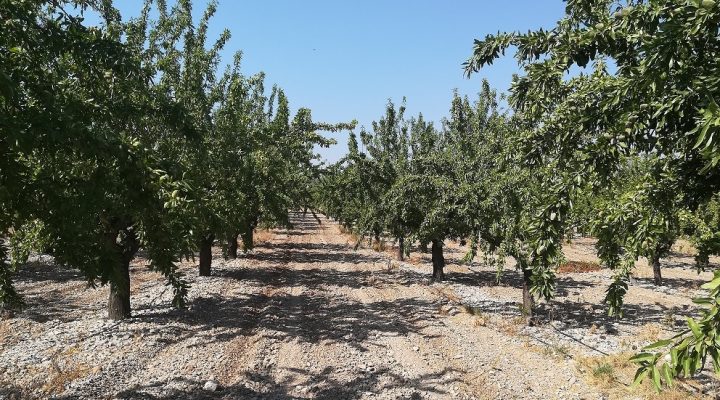Individuals in this stage often experience fewer cravings and temptations. They’ve developed new routines and lifestyle habits that support their sobriety. The preparation stage is an ideal time to address practical obstacles to recovery. This could include arranging time off work, sorting out childcare, or dealing with financial concerns. The researchers observed that successful change rarely occurs instantly. This insight challenged the prevailing view that behavior change was a sudden, all-or-nothing event.
- Drug or alcohol abuse and addiction are complex issues that require a multifaceted approach to recovery.
- Addiction recovery is a courageous journey of self-discovery and transformation, where individuals navigate through a series of stages, each presenting its own unique challenges and opportunities for growth.
- A better bet is to use this time to develop a detailed action plan and identify strategies that will help them conquer their alcohol addiction.
- If your family has a history of drug abuse, you may be more likely to struggle with addiction.
- Provide factual, non-biased information about substance use and treatment options.
The Connection Between Addiction and Infidelity
Addiction Resource does not favor or support any specific recovery center, nor do we claim to ensure the quality, validity, or effectiveness of any particular treatment center. No one should assume the information provided on Addiction Resource as authoritative and should always defer to the advice and care provided by a medical doctor. In most cases, the journey to recovery starts by being open to change. Although the recovery process has its challenges, the stages of change can be predicted and planned for in treatment. Understanding the different stages of recovery can help addicts and their loved ones prepare for the highs and lows of recovery and treatment. In the preparation stage, individuals prepare for change by setting goals and laying out actionable plans.
What are the initial steps to expect in the recovery process from addiction?
They become more aware of the pros and cons of their substance use. Internal conflict often increases as they weigh the benefits of quitting against the challenges of change. James O. Prochaska and Carlo DiClemente developed the Transtheoretical Model in the late 1970s. Their research focused on how people quit smoking without formal intervention. They identified common elements across various theories of behavioral change, leading to the creation of this integrated model.
Types of Treatment Programs
From professional treatment programs to peer support groups, there are numerous resources to help you along the way. Engaging in healing conversations about addiction recovery can provide valuable insights and support. The initial rush of taking control can be empowering, but it’s often followed by the realization of just how challenging recovery can be.
Ben Lesser is one of the most sought-after experts in health, fitness and medicine. His articles impress with unique research work as well as field-tested skills. He is a freelance medical writer specializing in creating content to improve public awareness of https://yourhealthmagazine.net/article/addiction/sober-houses-rules-that-you-should-follow/ health topics. We are honored to have Ben writing exclusively for Dualdiagnosis.org. Stage where people overtly modify their behavior and their surroundings. Read more about evidence based treatments that can help you reduce your alcohol use, particularly if you are finding it difficult to avoid alcohol.
• Empowerment—finding the wherewithal to cope with recovery and the challenges of life, which breeds a sense of self-efficacy. Saying a mantra, substituting thoughts of recovery goals, praying, reading something recovery-related, reaching out to someone supportive—all are useful tactics. Eating balanced meals and staying active not only improve physical health but also boost your mood and energy levels. Sleep hygiene is also crucial; a regular sleep schedule ensures your body and mind can recover properly. Addiction is a complex condition that affects both the brain and behavior. This section explores the science behind addiction and explains why it is considered a disease.
Recovery from Addiction
The finding on the wheel of change crosses gender, age, social status, and other personal inclination. Our free email newsletter offers guidance from top addiction specialists, inspiring sobriety stories, and practical recovery tips to help you or a loved one keep coming back and staying sober. Addiction is a lifelong disease treated through therapy and lifestyle changes. However, some addictive substances can cause damage to the brain, making addiction harder to address. Many treatment options are available if you or someone you know is ready to start recovering from addiction. In fact, relapse is part of the Transtheoretical Model of Change and is a common part of the recovery process.
Addiction can have a ripple effect on your life and negatively impact anything from your physical wellbeing to your mental health and even to your personal relationships. Addiction can also harm your ability to make well-informed decisions, leaving you with financial hardship and potentially trouble with the law. A better bet is to use this time to develop a detailed action plan and identify strategies that will help them conquer their alcohol addiction. This might include examining the sort of lifestyle changes they’ll need to make or researching types of treatment and treatment facilities.
Preparation is over, and real change begins to happen, whether that’s through entering a rehab program or quitting on their own. While participating in the 12 steps of recovery can be beneficial for many people, consider the advantages and disadvantages of these programs before you decide if this approach is right for you. Believing in this higher power may help someone find meaning in their life outside of addiction. For instance, they may find a greater sense of community by joining a spiritual or religious group. These can be healthy coping mechanisms someone turns to as they progress through recovery. For many people, these groups may serve as their primary resource for changing their behavior, but they also often augment formal treatment.
Understanding the progression of substance use disorders can provide valuable insights into the recovery process. It highlights just how far you’ve come and the strength it takes to break free from addiction’s grip. For those in various stages of recovery, remember that every step forward, no matter how small, is a victory. Whether you’re just beginning to contemplate change or you’re years into your recovery journey, your efforts are valuable and worthy of celebration. Advanced recovery is characterized by significant personal growth and self-discovery.
Stage 4: Action
This stage requires commitment and dedication to breaking harmful patterns. This is with the information that among the steps to recovery, there is a final step of recovery that must be attained as an ideal. The 5 stages of change addiction recovery Sober House Rules: What You Should Know Before Moving In deal with the aspect of decision making and behavioral discrepancies, while the sixth and final phase emphasizes closure. Discovery Transitions offers outpatient treatment programs for men and women seeking either to initiate or to continue recovery from alcoholism and/or drug addiction. As a transition program, we are ideal for anyone who has just completed an in-patient program and is ready to step down to a less intensive but highly structured continuation of treatment. In the action stage, individuals actively engage in their recovery by implementing changes in their lives, such as entering treatment programs and using coping strategies to manage triggers.
The 12 steps are also used in recovery programs for addictions other than alcohol. According to the Hierarchy of Needs Perspective, fulfilling basic needs is crucial before moving toward higher levels of personal achievement. For those in recovery, ensuring a stable environment, economic stability, and strong social support helps cultivate a strong foundation to pursue personal growth and self-actualization. These include quitting smoking, losing weight, and recovering from substance abuse. These stages are pre-contemplation, contemplation, preparation/determination, action/willpower, and maintenance.
Someone might remain in this stage due to a lack of information about addictive behaviors. Another reason we regularly see people get stuck in the precontemplation stage is disappointment with multiple failed attempts at recovery and treatment options. Most individuals in precontemplation feel that recovery simply isn’t possible for them. We provide medical detox and residential treatment for alcohol and drug addiction at the United Recovery Project. It’s easy for some people to transition through the stages of addiction recovery, whereas others find it challenging because the motivation to seek help varies widely due to different reasons.











Compartir